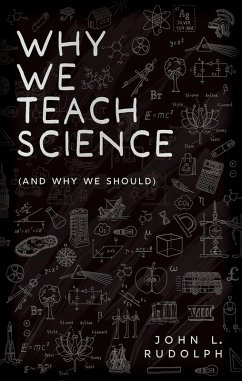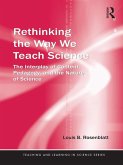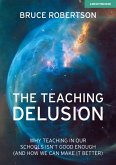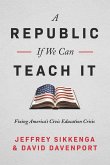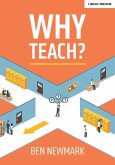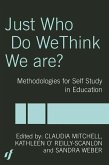Few people question the importance of science education in American schooling. The public readily accepts that it is the key to economic growth through innovation, develops the ability to reason more effectively, and enables us to solve the everyday problems we encounter through knowing how the world works. Good science teaching results in all these benefits and more -- or so we think. But what if all this is simply wrong? What if the benefits we assume science education produces turn out to be an illusion, nothing more than wishful thinking? In Why We Teach Science (and Why We Should), former high school teacher and historian of science education John L. Rudolph examines the reasons we've long given for teaching science and assesses how they hold up to what we know about what students really learn (or don't learn) in science classrooms and what research tells us about how people actually interact with science in their daily lives. The results will surprise you. Instead of more and more rigorous traditional science education to fill the STEM pipeline, Rudolph challenges us to think outside the box and makes the case for an expansive science education aimed instead at rebuilding trust between science and the public -- something we desperately need in our current era of impending natural challenges and science denial.
Dieser Download kann aus rechtlichen Gründen nur mit Rechnungsadresse in A, B, BG, CY, CZ, D, DK, EW, E, FIN, F, GR, HR, H, IRL, I, LT, L, LR, M, NL, PL, P, R, S, SLO, SK ausgeliefert werden.

